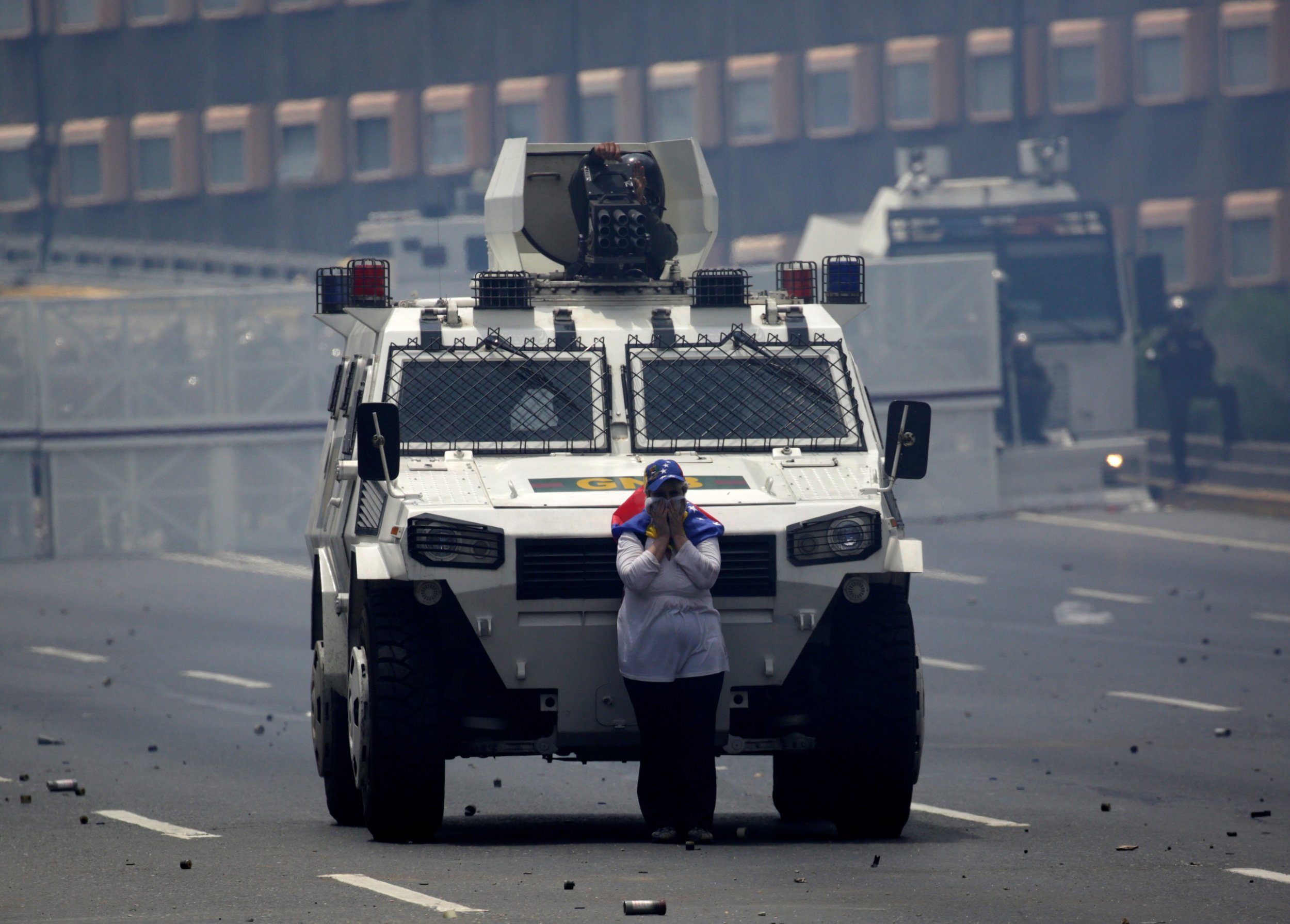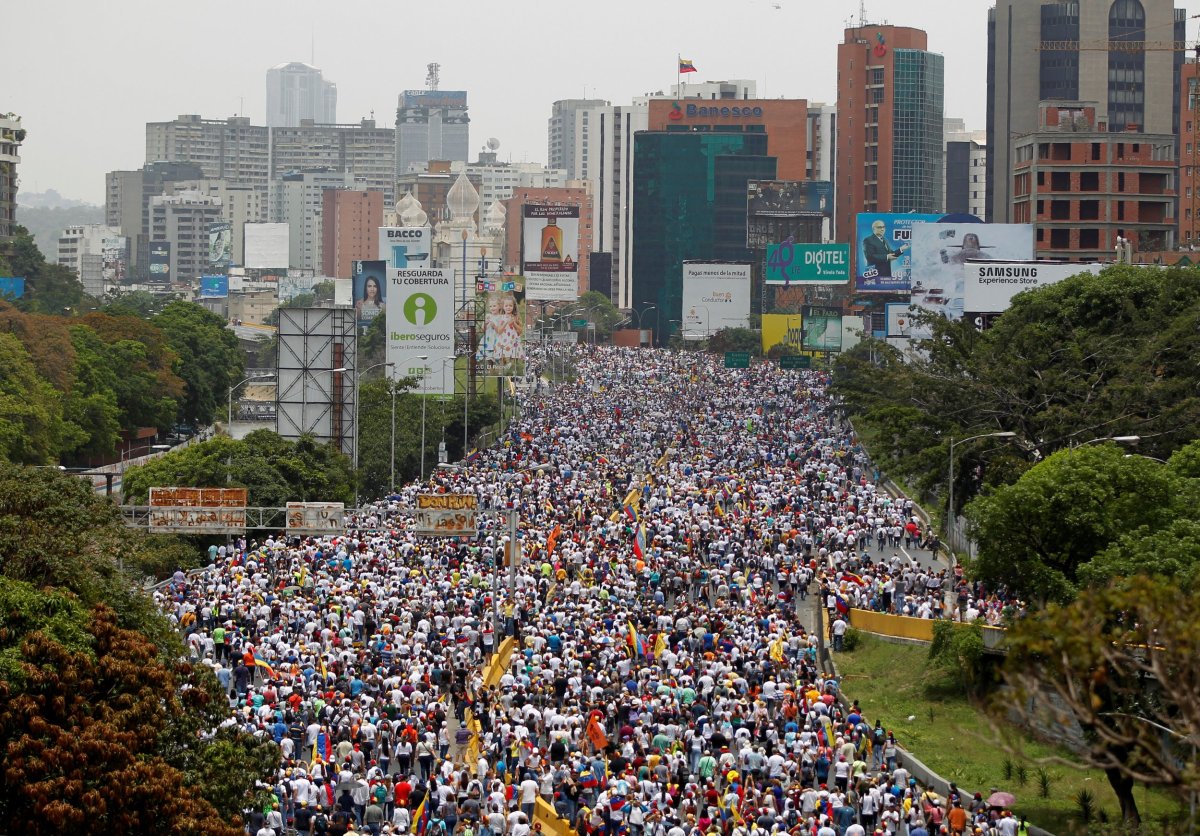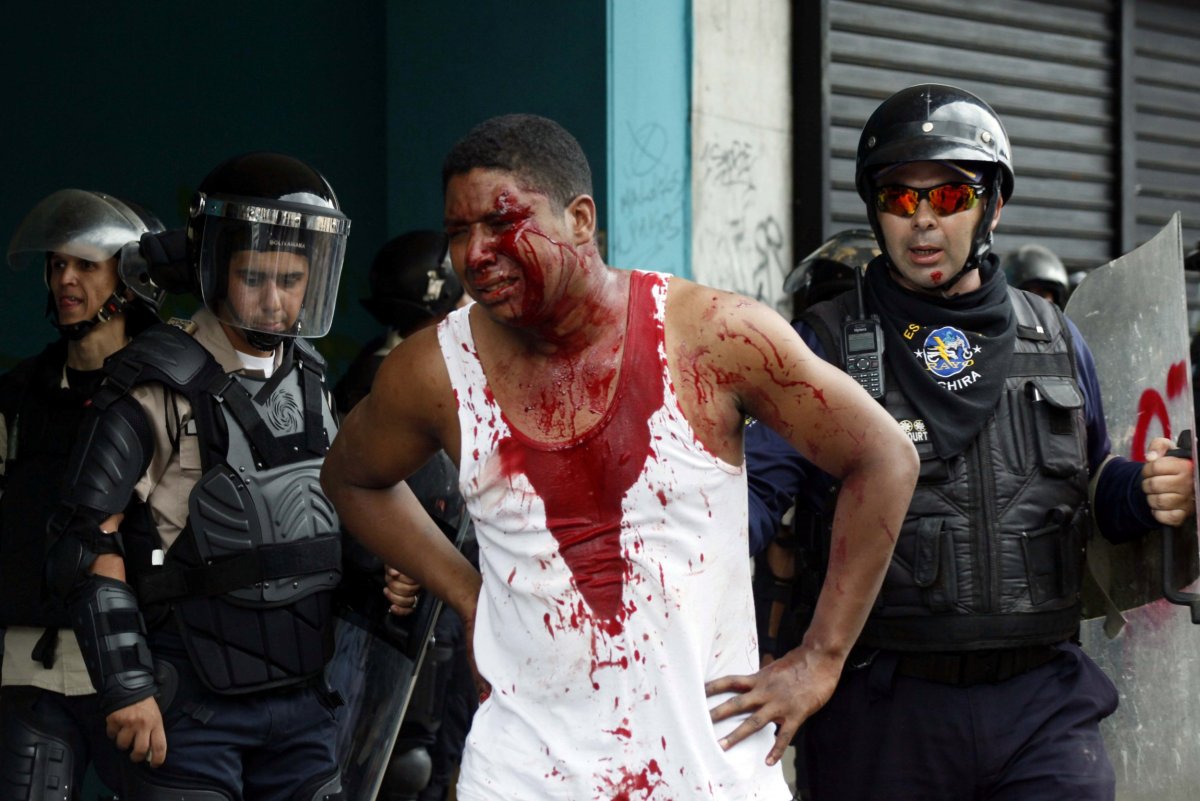
Three weeks of mass protests in Venezuela have so far resulted in nine deaths and hundreds of arrests — but the opposition vows to keep going.
Hundreds of thousands of people have marched across the country to demand elections in an effort to remove President Nicolas Maduro from power.
Opposition politicians and activists blame the president for the disastrous state of the economy, which contracted by 18.6 percent in 2016. Venezuela's economy is almost entirely based on oil revenues, which have been hit by the crash in oil prices that began in 2014.

Now with inflation soaring and purchasing power plunging, the country continues to face severe shortages of basic goods such as food, sanitary products and medicines.
But the final straw was a move from the Supreme Court on March 29 to revoke the legislative powers of the opposition-controlled National Assembly, a decision that provoked thousands to take to the streets, carrying placards and chanting for freedom and an end to dictatorship.
Read more: How ongoing anti-government protests are challenging Maduro's rule
The biggest protests so far took place on Wednesday, a national holiday that commemorates Venezuela's independence from Spanish colonial rule. When thousands turned out, police clad in riot gear responded by firing tear gas.

The question now, is whether that "Mother of all Marches" proves to be the moment when the anti-Maduro movement tipped the balance in its favor.
Are the protests likely to grow?
Three people were shot dead on Wednesday. They included a young man in Caracas who was caught in the middle of a clash between armed pro-government paramilitaries and protesters and a young woman in the opposition enclave of San Cristobal, who was killed as she left a protest. Her alleged killer was detained on Thursday. The third person killed was a national guard officer who was shot by a sniper, Reuters reported
But despite the deaths, tens of thousands marched once again on Thursday, keen to keep the momentum going. A young man was shot dead in clashes in Caracas and women and newborn babies were evacuated from a maternity hospital after it filled with tear gas, the Associated Press reported.
Maduro's supporters blamed the clashes on armed groups hired by the opposition, using the hashtag #DerechaAsesinaAtacaMaterno, or "The murderous right attacks a maternity ward" on social media.
At an outdoor news conference in the east of Caracas, opposition leaders called for a silent march on Saturday — wearing white to commemorate those who died — and a sit-in to block major highways on Monday.
According to Diego Moya-Ocampos, senior analyst at London-based think tank IHS Markit, the protests could continue for months unless either the government gives in to the demand for new elections, or the security apparatus succeeds in crushing the dissent.
"The government will do whatever it can to keep power, increasing the amount of force. We are going to see more repression, more paramilitary groups attacking protesters and instil fear in the civilian population," Moya-Ocampos tells Newsweek.
"The government has called for a dialogue but the opposition sees them as a way to gain time and appease the protests but not a real genuine call for election."
If and when Maduro gives in to opposition demand for new elections by the end of the year, there is no guarantee that the vote would be free and fair. According to Moya-Ocampos, the government is likely to ban popular opposition candidates from running.
Where does the military fit in?
The armed forces will play a crucial role in determining whether the demands of protesters will be met or quashed. "The military is the only institution with real power in the country," said Moya-Ocampos.
While the military's first allegiance is to Venezuela's constitution, it has deep ties to the Maduro government: Of 32 cabinet ministers, 11 — including the ministers of Defence and of Interior and Justice — are either serving or retired army officers.
"This is a government with a high military component treating an unarmed civilian population as enemy combatant. This is unprecedented in the Latin American region, certainly in the last decade," explained Moya-Ocampos.
"The military is not only allowing the paramilitary group to operate but it is also coordinating security operations with them, which again accounts for serious human rights violations."
Mid-ranking officers could still decide to break the line of command, or the protests may spread to the low-income neighbourhoods of western Caracas that have traditionally been loyal to Maduro. If this happens, it could prove the final straw for Maduro, who has seen his popularity among the electorate declining steadily over the past two years.
As tensions escalate, international concern over the situation is growing. Nine Latin American countries joined UN Secretary-General Antonio Guterres in calling for respect for democratic institutions.
In a statement released on Thursday, Guterres urged all sides to adopt "concrete measures" to reduce political polarization and "create the necessary conditions to face the country's challenges for the benefit of the Venezuelan people."
Uncommon Knowledge
Newsweek is committed to challenging conventional wisdom and finding connections in the search for common ground.
Newsweek is committed to challenging conventional wisdom and finding connections in the search for common ground.
About the writer
Sofia Lotto Persio reports mainly on Asia and gender issues for Newsweek. She previously covered international affairs with a specific ... Read more
To read how Newsweek uses AI as a newsroom tool, Click here.








